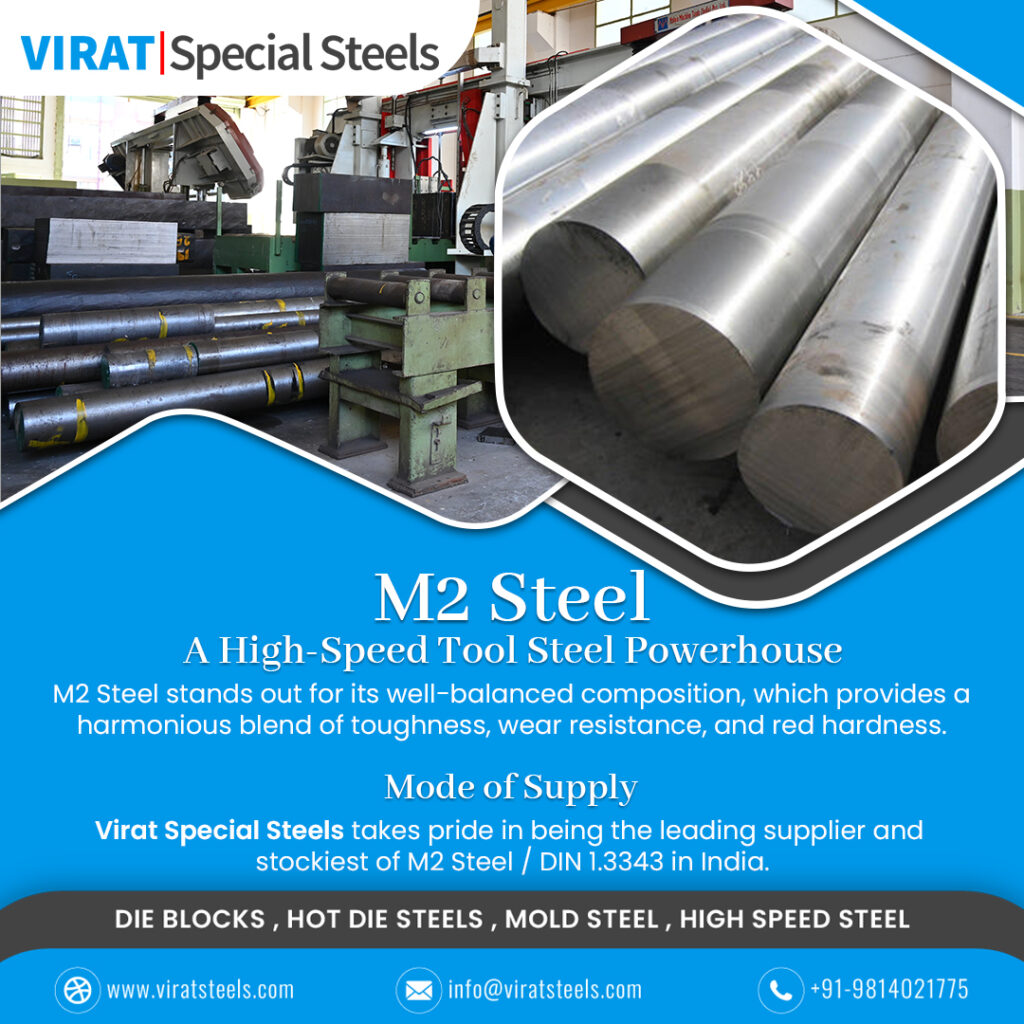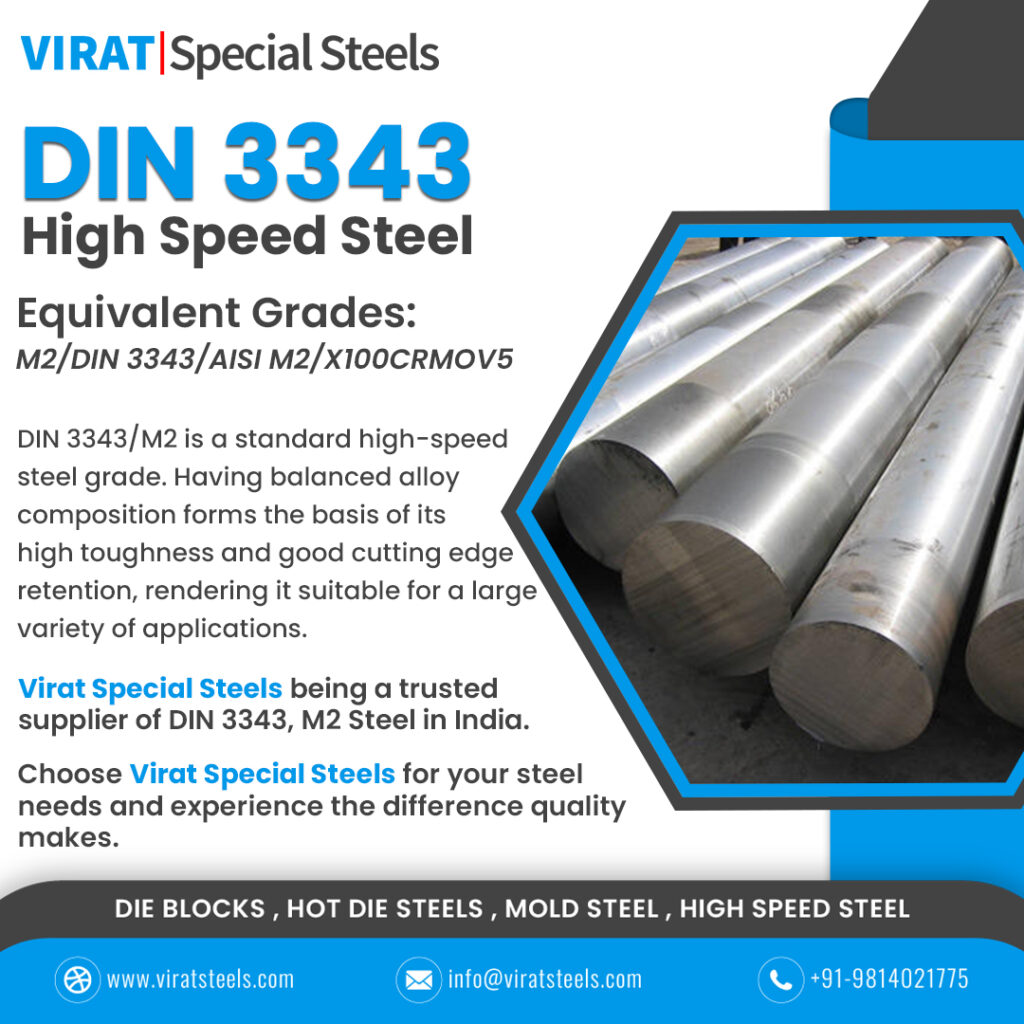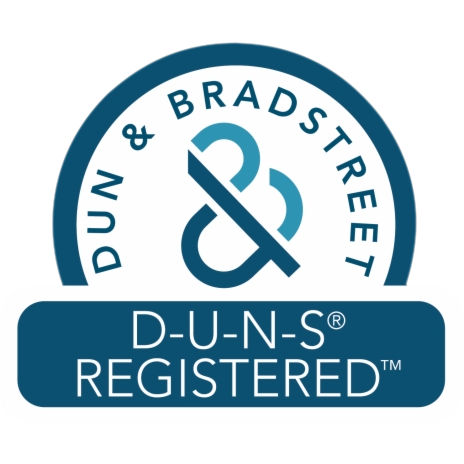DIN 3343
now browsing by tag
DB6 vs High Carbon Steels
When it comes to choosing steel for industrial, tooling, or manufacturing purposes, the choice often boils down to the material’s performance, strength, and durability. DB6 steel and high carbon steels are two prominent contenders in various industries. Each has its unique properties, uses, and advantages.
In this article, we’ll break down the differences between DB6 and high carbon steels to help you make the right decision based on your specific needs.

What is DB6 Steel?
Definition and Composition of DB6 Steel
DB6 is a premium-grade, hot-work tool steel that is specifically designed for die and tooling applications. It belongs to the H-series of tool steels and typically contains chromium, molybdenum, and vanadium as its core alloying elements.
Key Properties of DB6 Steel
- Toughness: DB6 exhibits excellent toughness, which helps it resist cracking under high stress.
- Heat Resistance: It maintains its strength at elevated temperatures.
- Wear Resistance: Due to its alloying elements, DB6 resists wear, making it perfect for heavy-use industrial tools.
- Hardness: It strikes a balance between hardness and machinability.
Common Applications of DB6 Steel
- Die Casting Dies: DB6 is frequently used in aluminum and zinc die-casting dies.
- Extrusion Tools: It excels in hot extrusion applications where heat resistance is critical.
- Plastic Molding: DB6 is utilized for injection molding applications due to its durability.
What are High Carbon Steels?
Definition and Composition of High Carbon Steels
High carbon steels are steels with a carbon content between 0.6% and 1.0%, which gives them enhanced hardness and strength compared to low and medium carbon steels.
Key Properties of High Carbon Steels
- Hardness: High carbon steels achieve high hardness levels when properly heat-treated.
- Strength: Their higher carbon content contributes to excellent tensile strength.
- Wear Resistance: High carbon steels resist abrasion effectively in moderate conditions.
- Machinability: They are harder to machine compared to low carbon steels but can be shaped under specific conditions.
Common Applications of High Carbon Steels
- Cutting Tools: Knives, blades, and cutting tools often rely on high carbon steels.
- Springs: Due to their elasticity and strength, high carbon steels are widely used for springs.
- Wires and Cables: Strong wires are frequently made using high carbon steels.
DB6 vs. High Carbon Steels: A Comparative Analysis
Composition Comparison
- DB6 Steel: Contains alloying elements like chromium, molybdenum, and vanadium, which enhance its toughness and resistance to heat and wear.
- High Carbon Steels: Primarily rely on carbon content for their hardness and strength without significant alloying additions.
Hardness and Toughness
- DB6 Steel: While DB6 may not be as hard as high carbon steels, it offers excellent toughness, making it ideal for high-stress industrial uses.
- High Carbon Steels: These steels are extremely hard but less tough, which makes them prone to cracking under extreme conditions.
Wear Resistance
- DB6’s alloyed structure offers superior wear resistance in high-temperature environments.
- High carbon steels provide moderate wear resistance but may degrade under high heat.
Machinability and Workability
- DB6 Steel: Offers good machinability and can be worked into complex shapes.
- High Carbon Steels: More challenging to machine due to their hardness.
Strength and Durability: DB6 vs. High Carbon Steels
DB6 Steel Strength Under Stress:
DB6’s robust toughness makes it ideal for repeated use in high-impact, high-heat scenarios, such as die-casting or extrusion.
High Carbon Steel Performance in High-Stress Environments:
While high carbon steels excel in strength, they are less durable in prolonged high-temperature environments, making them unsuitable for hot work applications.
Heat Treatment: DB6 vs. High Carbon Steels
Heat Treatment Process of DB6 Steel
DB6 is subjected to quenching and tempering processes, which give it optimal toughness and hardness for die applications.
Heat Treatment Process of High Carbon Steels
High carbon steels undergo annealing, hardening, and tempering to achieve high hardness levels.
Differences in Heat Treatment Outcomes
- DB6 retains toughness even after heat treatment.
- High carbon steels become extremely hard but lose some toughness in the process.
Corrosion Resistance
DB6 Steel’s Resistance to Corrosion:
DB6 has better corrosion resistance compared to high carbon steels due to its alloying elements like chromium.
High Carbon Steel’s Corrosion Limitations:
High carbon steels are more prone to rusting and corrosion when exposed to moisture or corrosive environments.
Conclusion
Choosing between DB6 steel and high carbon steels depends entirely on your application. If you need a material with excellent toughness, heat resistance, and wear performance, DB6 steel is your best bet. On the other hand, if cost and hardness are primary considerations, high carbon steels might meet your requirements.
FAQs
1. What is the biggest difference between DB6 and high carbon steels?
The biggest difference lies in their composition. DB6 is an alloyed tool steel, while high carbon steels rely on carbon for their properties.
2. Which steel is better for die and tooling?
DB6 is superior for die and tooling due to its heat resistance and toughness.
3. How do DB6 and high carbon steels respond to heat treatment?
DB6 retains toughness after heat treatment, whereas high carbon steels become extremely hard but lose toughness.
4. Is DB6 steel more expensive than high carbon steel?
Yes, DB6 steel is typically more expensive due to its alloying elements and superior properties.
5. Can high carbon steel replace DB6 in industrial applications?
High carbon steel can be used for specific low-temperature applications, but it cannot match DB6’s performance in hot work environments.
Discover the quality of Die Steel with VIRAT SPECIAL STEELS PVT. LIMITED. Get in touch with us today to place your requirement! Contact us today to buy the best quality DB6 / DIN 2714 steel for your tooling needs! https://www.viratsteels.com/din-2714.html
Any further queries feel free to contact us :
🌐https://www.viratsteels.com 📩info@viratsteels.com 📲+91-98140-21775
Exploring the Versatility of M2 High-Speed Tool Steel Powerhouse!
Discover the power of M2 Steel the high-speed tool steel that belongs to the tungsten–molybdenum series for cutting tools industries. Let’s delve into the details of M2 Steel, also known as AISI M2 or DIN 1.3343, particularly as offered by Virat Special Steels.

In the world of manufacturing and metalworking, the quest for materials that can withstand the rigors of high-speed operations is relentless. Enter M2 Steel, a high-speed tool steel that is part of the tungsten-molybdenum series, renowned for its exceptional performance in cutting tool industries. This steel grade, also known as DIN 1.3343 or AISI M2, is offered by Virat Special Steels, a name synonymous with quality and reliability in the steel industry.
M2 Steel stands out for its well-balanced composition, which provides a harmonious blend of toughness, wear resistance, and red hardness. These properties make it an ideal choice for a wide range of applications, from twist drills and milling cutters to broaches and reamers. The steel’s ability to retain a sharp cutting edge even at elevated temperatures is a testament to its superior quality.
The chemical makeup of M2 Steel includes a rich mix of molybdenum, tungsten, and vanadium, alongside a carbon content that exceeds 0.60%. This unique alloying allows M2 Steel to cut through metals at high speeds, significantly reducing material removal time and enhancing production efficiency.
One of the key advantages of M2 Steel is its versatility. It is frequently used in cold work punches, dies, and high-speed, light-cutting applications. Its popularity stems from its ability to replace the older T1 high-speed steel in most applications due to its superior properties and cost-effectiveness.
Virat Special Steels takes pride in being the leading supplier and stockiest of DIN 1.3343 in Europe. Their commitment to quality ensures that the M2 Steel they offer has undergone rigorous testing and meets the highest standards of toughness and cutting edge retention. This makes it suitable for a large variety of applications, especially in the cutting tools industry where precision and durability are paramount.
In conclusion, M2 Steel is more than just a material; it’s a cornerstone of high-speed tool steel that empowers industries to push the boundaries of production. Its exceptional properties and the assurance of quality from suppliers like Virat Special Steels make it a go-to choice for those looking to ‘heat up their production’ and achieve excellence in their manufacturing processes. For more information on M2 Steel and its applications, or to consult with an expert, consider visiting the Espresso Drive Cafe in Gurugram, where the fusion of steel and strategy brews over a cup of coffee.
Contact us today to learn more about our products and services!
🌐https://www.viratsteels.com/m2.html
📬info@viratsteels.com ☎+91 98140-21775
DIN 3343 or M2 High Speed Steel for your engineering work!
DIN 3343 refers to a German standard for high-speed steel (HSS). It specifies the requirements for HSS materials used in cutting tools, drills, and other applications where high wear resistance and toughness are essential.

The designation DIN 3343 typically corresponds to a specific grade of HSS, which may include elements like tungsten (W), molybdenum (Mo), vanadium (V), and cobalt (Co) to enhance its properties.
These HSS materials are known for their ability to withstand high temperatures during cutting and machining processes. They maintain their hardness even at elevated temperatures, making them suitable for demanding applications.
Equivalent Grades:
M2/DIN 3343/AISI M2/X100CRMOV5
Let’s explore the significant features of DIN 3343 (also known as M2 Steel), which plays a crucial role in the world of tool steels:
- Exceptional Hardness and Wear Resistance: M2 Steel stands as a pinnacle in the realm of high-speed tool steels. Its unmatched hardness and wear resistance make it ideal for cutting, machining, and forming applications. When precision and longevity matter, M2 Steel delivers.
- Heat Resistance: In demanding environments where tools are exposed to high temperatures during cutting and shaping processes, M2 Steel maintains its mechanical properties. It can withstand the heat generated during operations, ensuring consistent performance.
- Toughness and Thermo-Plasticity: The combination of toughness and thermo-plasticity sets M2 Steel apart. Its bending strength and toughness are 50% greater than that of T1 steel, making it a preferred choice in various applications.
- Versatility: Whether it’s cold work punches, dies, or high-speed, light-cutting tools, M2 High-Speed Steel shines. Its adaptability across industries—such as aerospace, automotive, and precision engineering—makes it indispensable.
Remember, proper heat treatment and maintenance are essential to maximize the benefits of M2 Steel. If you’re looking for a reliable supplier, consider exploring Virat Special Steels’ offerings Now.
We supply steel bars to forging companies across #Ludhiana, #Faridabad, #Bhiwadi, #Sonipat, #Rohtak, #Haryana, #Punjab, #Jamshedpur, #Trichy, #Aurangabad, #Pune, #Gurgaon, #Noida, #Ghaziabad, #Indore, and all locations in India. https://www.viratsteel.in/materials/high-speed-steel-supplier-in-india/
Virat Special Steels being a trusted supplier in India, it’s worth exploring their offerings for both DIN 3343 and M2 Steel. Choose Virat Special Steels for your steel needs and experience the difference quality makes.
Contact us today to learn more about our products and services!
🌐https://www.viratsteels.com 📬info@viratsteels.com ☎+91 098140-21775






